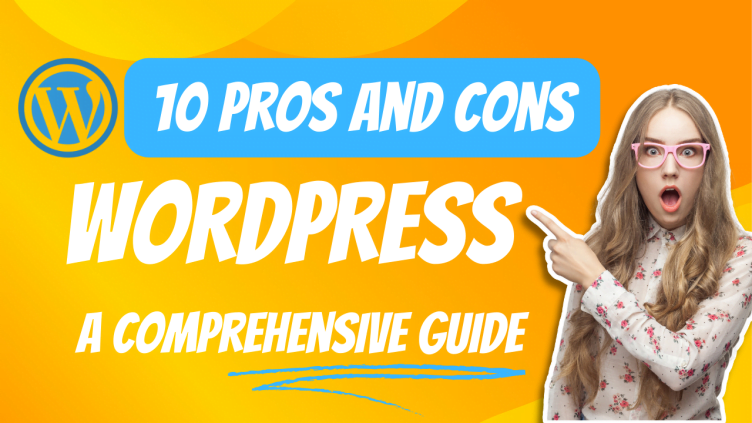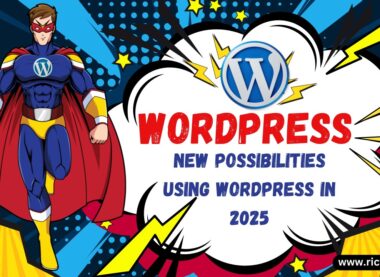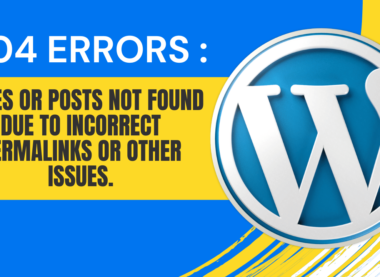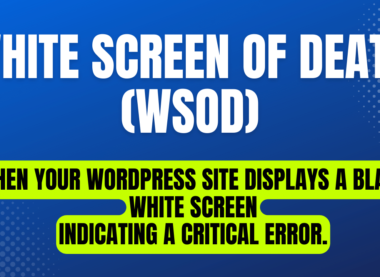In the digital landscape, having a robust and user-friendly website is essential for individuals and businesses alike. WordPress has emerged as a leading platform for creating websites, but like any tool, it comes with its share of advantages and disadvantages. In this article, we’ll explore ten key pros and cons of WordPress websites to help you make an informed decision.
Advantages of WordPress Websites
1. Ease of Use: WordPress boasts a user-friendly interface, making it accessible for beginners. Creating, editing, and managing content becomes a breeze even for those with limited technical expertise.
2. Customization: With a vast collection of themes and plugins, you can tailor your website’s appearance and functionality to align with your unique brand identity and objectives.
3. Search Engine Optimization (SEO): WordPress offers a range of SEO plugins like Yoast SEO, enabling you to optimize your content for search engines and enhance your website’s visibility.
4. Responsive Design: Many WordPress themes are designed to be responsive, ensuring your website looks and functions seamlessly across various devices, contributing to an improved user experience.
5. Supportive Community: As an open-source platform, WordPress benefits from an extensive community of users and developers. This means you can find help, guidance, and solutions to challenges you might encounter.
6. Scalability: Whether you’re running a personal blog or a growing e-commerce store, WordPress scales effectively to accommodate your evolving needs without a significant learning curve.
7. Content Management: The platform excels in content management, allowing you to organize your articles, images, and media efficiently, helping you maintain a structured website.
8. Cost-Effective: The core version of WordPress is free, which is a boon for startups and small businesses looking to establish an online presence without a hefty upfront investment.
9. E-commerce Capabilities: With plugins like WooCommerce, WordPress can power your online store, offering a seamless integration that combines your content and sales operations.
10. Constant Development: The platform is continually evolving, with updates and enhancements rolled out regularly, ensuring your website remains secure, fast, and up-to-date.
Disadvantages of WordPress Websites
1. Learning Curve: Despite its user-friendliness, newcomers might still require time to understand all the features and capabilities of WordPress.
2. Maintenance: Regular updates for themes, plugins, and the platform itself are necessary to ensure security and performance, demanding ongoing maintenance.
3. Security Vulnerabilities: Being popular makes WordPress a target for hackers. While security plugins and best practices help, there’s always a risk of vulnerabilities.
4. Plugin Compatibility: Not all plugins are built equally, and conflicts between different plugins or themes can sometimes arise, causing compatibility issues.
5. Speed Optimization: Without proper optimization, WordPress websites can be slow to load, impacting user experience and search engine rankings.
6. Overwhelming Choices: The vast array of themes and plugins can be overwhelming, leading to decision fatigue when selecting the right options for your website.
7. Limited Uniqueness: While customizable, certain themes might limit your ability to create a completely unique design, potentially resulting in similar-looking websites.
8. Dependency on Third-Party Providers: Relying heavily on third-party themes and plugins means your website’s functionality is tied to their continued development and support.
9. Data Backup: Managing regular backups is essential to prevent data loss, and while plugins can automate this process, it’s still an additional task to oversee.
10. Performance Scaling: While suitable for most scenarios, extremely high-traffic websites might require additional optimizations to maintain optimal performance.
Contact with a WordPress expert
Conclusion
WordPress is undoubtedly a powerful and versatile platform for creating websites, but it’s important to weigh its advantages and disadvantages to determine if it aligns with your specific needs and goals. By understanding the nuances of this platform, you can make an informed decision that contributes to the success of your online presence.







